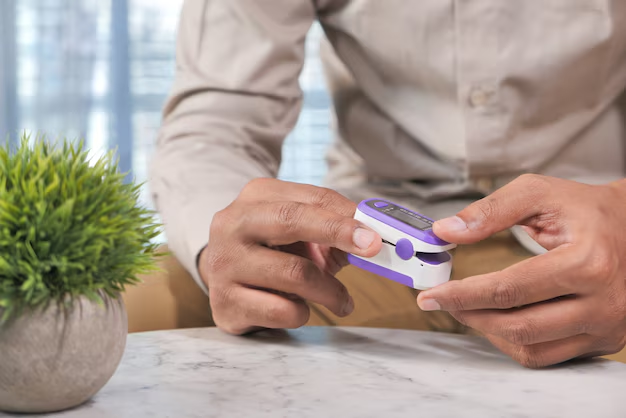Your Guide to How Do You Check For Diabetes
What You Get:
Free Guide
Free, helpful information about Diabetes FAQ and related How Do You Check For Diabetes topics.
Helpful Information
Get clear and easy-to-understand details about How Do You Check For Diabetes topics and resources.
Personalized Offers
Answer a few optional questions to receive offers or information related to Diabetes FAQ. The survey is optional and not required to access your free guide.
Curious About Checking for Diabetes? Here's What You Need to Know
Discovering whether you have diabetes doesn’t have to be an overwhelming process. Understanding your health is the first step towards taking control, and advancements in medical testing have made it easier than ever to detect early signs of this condition. With more than 34 million Americans living with diabetes, regular screening can help you catch it early, manage it effectively, and avoid serious complications. Whether you're experiencing symptoms or simply taking precautionary steps, here’s how you can check if diabetes is a part of your life.
Symptoms to Watch For
Before we dive into specific tests, it's vital to be aware of the warning signs of diabetes. These may include:
- Frequent urination
- Excessive thirst or hunger
- Unexplained weight loss
- Blurred vision
- Slow-healing wounds
If you're experiencing any of these symptoms, consider reaching out to a healthcare provider promptly.
Types of Diabetes Tests
Screening for diabetes involves testing your blood glucose levels. There are several common methods used:
**1. Fasting Blood Sugar Test
This test measures your blood sugar after an overnight fast. It's a straightforward approach often used in routine check-ups.
**2. A1C Test
The A1C test provides an average blood sugar level over the past two to three months. It's a practical method that doesn’t require fasting and is useful for both diagnosis and management.
**3. Oral Glucose Tolerance Test (OGTT)
Primarily for diagnosing type 2 diabetes and gestational diabetes, this test involves fasting, drinking a sugary solution, and checking blood glucose levels several times over a few hours.
**4. Random Blood Sugar Test
This test measures blood glucose at any time and isn't necessarily linked to when you last ate, offering a quick diagnosis method.
Accessing Tests and Financial Assistance
If you're concerned about the potential costs of diabetes tests, there are numerous financial supports available to ensure you get checked without breaking the bank. Many clinics and health organizations offer free or low-cost screenings, particularly during health fairs.
For ongoing management, particularly for those diagnosed with diabetes, supportive measures include:
Government Aid Programs: Programs like Medicaid or Medicare can help cover costs for those eligible.
Non-Profit Organizations: Groups like the American Diabetes Association often offer resources to help find affordable medical care.
Empowering Your Health through Education and Financial Resources
Learning more about diabetes and its management can crucially affect how you adapt to living with it. Beyond medical support, exploring financial and educational resources can provide peace of mind.
Consider These Opportunities:
Educational Grants: Pursue online courses or workshops about diabetes management through grants that often cover educational materials.
Debt Relief Options: Organizations might offer debt relief assistance specifically for medical expenses, ensuring healthcare access without financial strain.
Credit Card Solutions: Some specialized credit cards offer health expense benefits—think interest-free periods on medical-related spending.
By coupling medical vigilance with financial savvy, you can help protect your health and maintain economic stability. Taking charge doesn’t simply mean regular medical check-ups; it's about empowering yourself with knowledge and resources to face diabetes with confidence.
Resources at a Glance 🌟
- 🏥 Medicaid/Medicare: For eligible individuals to cover diabetes-related expenses.
- 🌐 American Diabetes Association: Offers access to affordable care resources.
- 🎓 Educational Grants: Financial aid to further learning about diabetes management.
- 🧾 Medical Debt Relief: Options to assist with paying off medical bills.
- 💳 Health-Oriented Credit Cards: Specialized cards for covering medical and diabetes management costs.
Staying informed and proactive in seeking both medical advice and financial assistance plays a crucial role in promoting both your health and well-being.
What You Get:
Free Diabetes FAQ Guide
Free, helpful information about How Do You Check For Diabetes and related resources.

Helpful Information
Get clear, easy-to-understand details about How Do You Check For Diabetes topics.

Optional Personalized Offers
Answer a few optional questions to see offers or information related to Diabetes FAQ. Participation is not required to get your free guide.


